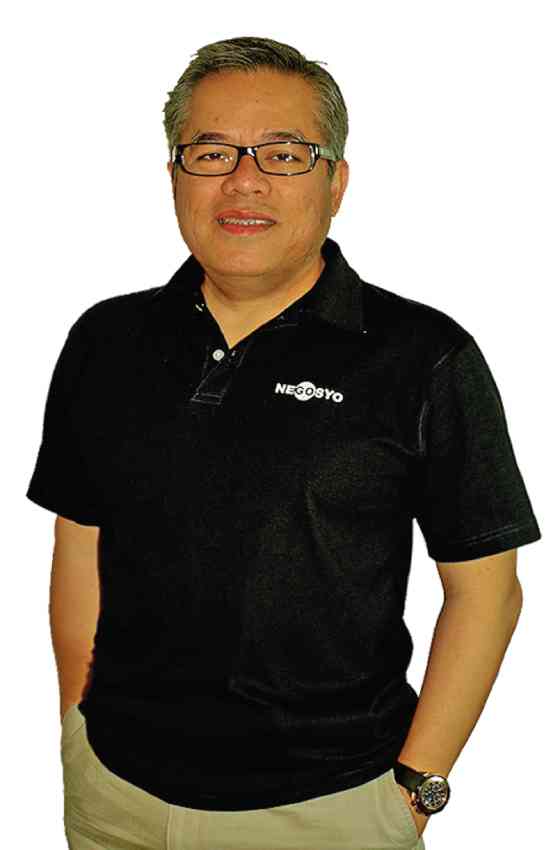Many plans are either done poorly or not done at all. In fact, since most executives are more involved on getting things done, there are more failures associated with poor execution than poor strategy. Go Negosyo executive director and RFM VP for corporate planning Ramon Lopez shares with us the importance of both implementation and strategy formulation.
Question: Go Negosyo holds many conferences, recognition and book launches yearly with tens of thousands of people attending. What do you think are critical success factors to get things done as planned?
Answer: Partnership with several sectors and stakeholders, like-minded entrepreneurs, corporate partners, institutions like PFA AFFI, government, NGOs, media networks like DZRH PTV4, Businessworld, Philstar, Inquirer, Rappler, Mansmith and Fielders and entrep gurus, functional experts and mentors like you or what we call Go Negosyo Angelpreneurs who all believe in our cause of empowering others to level up. We also developed special partnership with schools, youth organizations, micro entrepreneur organizations and various groups which would send delegates who they know can benefit from our programs. We also enjoy the support of youth volunteers and partner-school organizations for the big summits we conduct.
Getting their trust, cooperation is important, making sure it’s mutually beneficial to all parties to the point of even going the extra mile to make sure our partners are satisfied with the arrangements. Sustaining very good relationship with partners assures a continuing program.
Planning well with the very organized and motivated Go Negosyo team who would have their specific tasks and deliverables. The team is composed of relatively young and motivated advocates and staff, who also have the passion to play a role in promoting an entrepreneurial culture and competencies in the country. We follow a template of checklist, timelines, responsible units. Frequent review and quick decisions if there are challenges met. Having a back-up plan would of course be necessary.
Q: What is your most memorable execution blunder in events which became the most important lesson for your team in subsequent runs?
A: We are fortunate to have good runs of our programs and Summits. What I could think of as a blunder would be underestimating the number of attendees in one of the Summits about three years ago where we prepared for just two halls but the attendees came in droves when unfortunately some were denied access to entry by the management of the venue for safety reason. Despite our appeal with the venue management, they had to apply strictly their rules to prevent accidents. The affected attendees got frustrated and left the Summit and we apologized to them but we did our best in convincing the venue management to relax their limits. I recall that that was the year when there were people who got hurt in a stampede in another event of another group early that year so the venue was so strict. In another occasion, the venue lent us a third hall so we could accommodate the excess attendees. The next Summit, we had to estimate better the crowd expected to attend and plan for the right size of the venue.
Q: How do you build the capabilities and competencies of your people in Go Negosyo? How is that different in RFM?
A: Their competencies and capabilities are naturally developed because they are present in all these empowering seminars that we organized. I kid them that after hearing many of those runs, they can already teach those topics we cover, like success factors cited by many entrepreneurs, approaches to business problems, how to innovate and renovate, franchising, how to develop an entrepreneurial mind-set, spotting opportunities, product development, marketing, financial literacy and business finance. Of course, it wont be that easy to replicate the lectures and we leave it to the experts to handle it. But they are learning definitely along the way.
We also let them attend development programs given by other groups that can help them in competency and personal growth.
Q: Can you give any tips on avoiding miscommunication and unfounded assumptions in event organizing?
A: Regular huddle on the checklists and review of the status and acting quickly on pending issues. As you get close to the date of the program execution, it will have to be a daily huddle on the status and checklist. We would also have production meetings where all parties attend, including our suppliers say of technical, production, lights sounds, panels, venue etc. For bigger Summits, we would also do a simulation dry-run of how the program will flow, the movements of the crowd, the people on stage and so on.
Using technology like group chats/ egroups, having direct communication, cutting the layers and bureaucracy, calling the person concerned, on top of texting the person. Full disclosure of the plans, constant update to the entire team so everyone is in the loop especially if there are revisions or new updates.
Q: How is coordination done in your events? What is your setup like? How else can this be improved?
A: We are a relatively small and flat organization so we all meet as a team to discuss the programs and have closer coordination. Technology or apps for group chats also help a lot for real time updates.
Q: In your experience, what are keys to success of collaborations and alliances?
A: Shared vision, beliefs, values to empower others. Relationship based on trust sincerity and mutually beneficial programs.
(Josiah Go is chair of marketing training company Mansmith and Fielders Inc. For complete interview, as well as interviews with other thought leaders, follow him at www.josiahgo.com)


